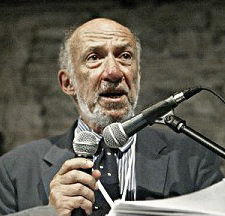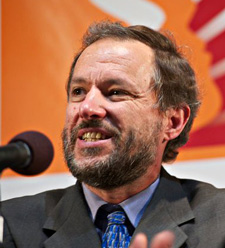Archive for June, 2014
The world right now: A Mid-Year Report
By Johan Galtung
Time to take stock. The shot in Sarajevo 100 years ago inspires narratives of 19-year old Gavrilo Princip killing the successor to the throne of an empire and his pregnant wife as the event unleashing mutual mass murder (INYT, FAZ 28-29 June 2014). Not the empire annexing Bosnia-Herzegovina on October 6, 1908 (Art. 25 of the 1878 Berlin Congress of “great powers”).
Maybe the inhabitants did not like it?
Moral of that stock-taking: watch out for terrorism, not for empires and occupation-colonialism; and protect leaders, not people.
ISIS (Islamic State of Iraq and the Levant, alternatively translated as Islamic State of Iraq and Syria and Islamic State of Iraq and al-Sham) comes up. TIME 30 June: The End of Iraq. Maybe Iraq – that highly artificial English colonial entity encasing Shia Arabs, Sunni Arabs and Sunni Kurds–never started?
Like its French colonial neighbor Syria – adding Alawite Arabs, Christians, Jews and others? Ever heard about Sykes-Picot and their czarist Russian allies?
Can such crimes just pass, with no counter-forces?
Watch out, a key point about ISIS – now comprising a major part of IS – is as a bridge over the English-French colonial divide, in favor of a Sunni Arab caliphate. Like it or not, these are very strong forces from the past in the daylight of the present. Read the rest of this entry »
TFF PressInfo: If militarism continues, humankind is doomed
By Jan Oberg
Both NATO and the EU has just announced that their members will now invest more in the military. It’s indicative of the lack of creativity in both organisations, it is self-defeating and counter-productive.
But have you seen it put on top of any agenda and debated? You haven’t, it is so normal – and the argument is that we are threatened. That’s called fearology: Making tax payers pay even more by making them scared.
The military sector is a parasite on society
The military sector produces much less employment than the civilian per invested dollar. It’s a huge burden on the economy because it swallows creativity, research and development badly needed to solve humankind’s real problems.
Weapons don’t belong to a market, there is no competition – the state is the only buyer – and thus tax payers must cover the systematic cost overruns.
We are told that there is economic crisis and we must cut down on hospitals, schools and human care everywhere. But this we can afford?
But what if the military did solve our problems? Read the rest of this entry »
Worse world or better world?
By Jonathan Power
War is all over the place. It seems. Not just Syria and Iraq but now inside Pakistan. Not to mention Somalia and Sudan. Yet paradoxically there has never been less war.
Sweden’s Uppsala University Conflict Data program is about to publish its results for 2013. It reports that the number of conflicts in the world increased by one between 2012 and 2013 – pace all the press and TV coverage which sometimes gives the impression that half the world is going up in smoke.
Since the Cold War ended the number of conflicts claiming more than 1,000 deaths has declined by 50%. There were 15 conflicts of this size in the early 1990s. Today there are only seven.
In 2013 six peace agreements were signed – which is two more than the year before.
The number of democratic countries was 69 at the end of the Cold War. Today there are around 120. The number of autocracies has declined in that time from 62 to 48.
The American foreign policy elite appears unaware of these trends. Read the rest of this entry »
Spain 2050 – Ten predictions
By Johan Galtung
Alfaz; History group, Municipio, Spain
Can we know the future? Rhetorical answer: can we know the past?
We rewrite history all the time, not because facts become dubious and new facts appear, but because our angle, perspective, changes. Say, from a series of kings, presidents etc. and their exercise of military and political power to economic and cultural changes in the life of common people, in their wellbeing and identity. Quite some change.
Will we arrive at that single, true, objective perspective?
No, objectivity may be multi-subjective, not inter-subjective. This is why Al Jazeera is so much better for knowing the present than CNN, which presents the US angle, and if there are other angles a US “expert” will give the final interpretation. Al Jazeera presents many angles of many parties and leaves final interpretations to the viewer.
How can we shed some light into the future? Basically there are two approaches: the Cartesian based on extending trends, and daoism based on holism and dialectics. They do not exclude each other.
Thus, there are three world trends that certainly affect Spain… Read the rest of this entry »
TFF PressInfo: What to do now in Iraq?
By Jonathan Power
June 17th 2014
Is it “you reap what you sow”? The US electorate that voted twice for President George W. Bush should ask itself the question. The growing strength of ISIS and Jabhat al-Nusra, represents a grave threat to the future of the Middle East and the US has no one to blame but itself.
ISIS (The Islamic State of Iraq and al-Sham), it is being said, could eventually reconfigure the Middle East if it is able to seize significant chunks of Iraq and Syria, the Arab world’s two strategic centrepieces, spanning the Mediterranean to the Persian Gulf.
ISIS has begun setting up a proto-state in parts of Syria and Iraq, with its own courts, police and public services. According to the well-informed Middle East watcher, Robin Wright, “ISIS has become the most aggressive and ambitious extremist movement in the world. It is also the most deadly and the most accomplished, dwarfing its parent, al-Qaeda, in influence and impact”.
US policymakers understand from painful experience that military aid will not simply pressure Iraq’s Shia prime minister, Nurial al-Maliki, with his autocratic sectarianism, to make serious concessions to Iraqi Sunnis, and thus help dry up the waters in which ISIS swims.
But what else can President Barack Obama do? Read the rest of this entry »
Force-feeding Palestinian hunger strikers
By Richard Falk
Palestine Hunger Strike and Israeli Force-Feeding Pending Legislation
The highly respected Israeli human rights NGO, Adalah, has issued an urgent appeal on behalf of a reported 125 Palestinian prisoners who are engaged in a hunger strike protesting their being held in Israeli jails on the basis of ‘administrative detention’ procedures.
It is the longest collective hunger strike in Palestinian history.
Administrative detention is an objectionable practice by which individuals are held in prison, sometime for months or even years, without being informed of charges or facing trial. According to international law reliance on administrative detention is regarded as prohibited unless there are overwhelming reasons in the form of imminent and severe security threats to justify the failure to produce criminal charges and hold a trial.
Israel has made no such appeal, and appears to use administrative detention procedures routinely and against individuals who cannot be considered security threats.
The current hunger strike commenced on April 24, over 50 days ago. Continue reading here.
Do Russia and China threaten the West?
By Jonathan Power
In recent months the scare-mongers have been at it again – Russia’s foray into Ukraine and China’s behaviour in the South China Sea have set their alarm bells ringing. But why?
Big power politics is not back. Indeed in the round it is rather subdued. Take the Russian-EU-US fracas over Ukraine at the moment. Does this compare with the Cold War when the West prepared itself for a Russian invasion of Europe, nuclear missiles were targeted on each other, and when the Soviet Union along with the US stirred up proxy civil wars in Central America and Africa?
Do the US and NATO fear such threats as these today? Of course not. Critics of President Barack Obama and denigrators of President Vladimir Putin badly need a sense of perspective. Read the rest of this entry »
Good, innovative governance – what is that?
By Johan Galtung
Pretoria, South Africa, Keynote
Governance is politics, power–political-economic-military-cultural; decisions-carrots-sticks-ideas. Politics is about problems of realizing one goal; about conflicts realizing incompatible goals. Contradiction = danger+opportunity; the art of the impossible.
Answer: Good Governance GG = CC Creative Conflict-transformation.
This includes diagnosis, who are the parties, their goals and the incompatibilities; prognosis, from frustration to aggression/apathy, from prejudice-discrimination to hatred-violence; therapy, conflict solution-transformation, proposing creative visions of a new reality where the goals are compatible and new conflicts more easily handled.
Two examples of creative, good governance from Norway and Europe: Read the rest of this entry »
Prosecuting Syrians for war crimes now
By Richard Falk
A major undertaking of the victorious powers in World War II was to impose individual criminal accountability upon political and military leaders for alleged crimes committed during wartime before a tribunal convened by the victors that gave those accused a fair opportunity to present a defense.
This application of this idea of accountability to German and Japanese surviving leaders at trials held in Nuremberg and Tokyo was hailed at the time as a major step in the direction of a ‘just peace.’
International law was treated as binding upon sovereign states and those that represented the government, conceived to be a major step in the direction of a global rule of law. The final decisions of these tribunals also produced a narrative as to why World War II was a necessary and just war. Such an outcome was both a vindication of the victory on the battlefield and a punitive repudiation of those who fought and lost. Significantly, this criminal process was formally initiated only after the combat phase of the war had ended and Germany and Japan had surrendered. Read the rest of this entry »
A nonviolent alternative for Ukraine
By Stephen Zunes and Erica Chenoweth
May 28, 2014 – Published at foreignpolicy.com
Ukraine faces a rising tide of violence in the restive east. Here’s why nonviolent activism is the best strategy for fighting back.
On May 15, thousands of unarmed residents and steelworkers of the eastern Ukrainian city of Mariupol did nonviolently what a bloody attack by Ukrainian troops six days earlier was unable to: rid the region’s second-largest city of armed pro-Russian separatists who had held key buildings and other parts of the city for weeks. Smaller protests have taken place in other cities in eastern Ukraine held by separatists.
In the eastern cities targeted by armed pro-Russian militias, such as Donetsk, Lugansk, and Krivy Rig, large nonviolent protests in support of national unity have taken place in recent weeks. Continue here.
Originally published here.





